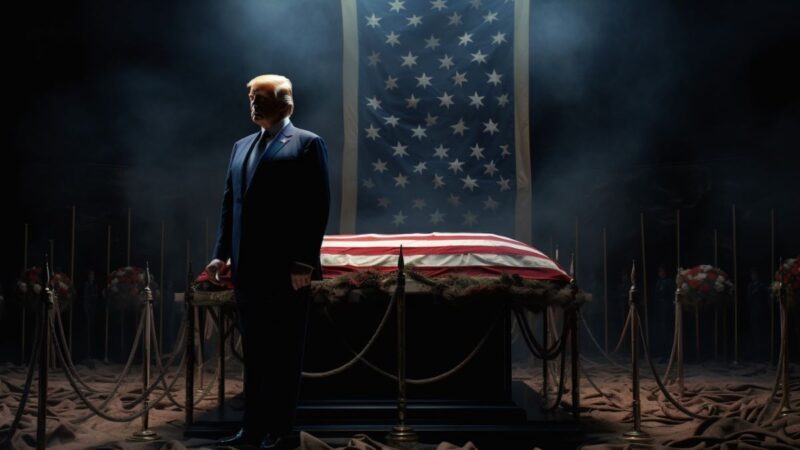Trump’s Chief of Staff John Kelly Speaks Out

In an era dominated by political intrigue, the 45th president of the United States, Mr. Donald Trump, frequently occupied headlines. But while most controversies fade, the details of Trump’s open scorn and disdain for the military service members and veterans of his country persist.
This is a dark chapter in the annals of the American presidency, where a commander-in-chief displayed such unabashed contempt for those who sacrificed for the nation.
John Kelly, Trump’s longest-serving White House chief of staff, could remain silent no longer. In a statement to CNN, he shattered any lingering doubts about Trump’s views on military service members and veterans. Kelly’s searing statement provides an on-the-record confirmation of multiple distressing stories, shedding light on Trump’s shocking perspectives behind closed doors.
“A person who thinks those who defend their country in uniform are ‘suckers’… A person who admires autocrats and murderous dictators… A person that has nothing but contempt for our democratic institutions, our Constitution, and the rule of law,” Kelly lamented about his former boss.
Trump’s baffling lack of understanding for service and sacrifice extended to questioning Kelly during a somber visit to Arlington National Cemetery. Staring at the graves of those who lost their lives in Iraq and Afghanistan, Trump perplexedly remarked, “I don’t get it. What was in it for them?”. This profound disconnect extends to Trump’s public and private remarks about Sen. John McCain, a former Vietnam POW. Openly, Trump dismissed him as “not a war hero,” and privately labeled him, along with President George H.W. Bush, as “losers”.
It is a damning portrait of a man who held the nation’s highest office.
Kelly’s revelations also draw attention to Trump’s trip to France in 2018. Here, Trump reportedly didn’t wish to visit the graves of American soldiers at the Aisne-Marne American Cemetery. His reason? The cemetery was “filled with losers”. This gross insensitivity paints a picture of a president unwilling, or incapable, of understanding the depths of bravery, sacrifice, and honor.
Then there’s the matter of Trump’s military parade aspirations. He envisioned a grand spectacle, inspired by France’s Bastille Day. But for Trump, there was one glaring issue: he didn’t want any wounded veterans to be part of it. Kelly, struggling to fathom such callousness, responded, “Those are the heroes… In our society, there’s only one group of people who are more heroic than they are – and they are buried over in Arlington”1.
Kelly isn’t alone in his critiques. Former Trump White House aide Cassidy Hutchinson, in her new book, warns that “Donald Trump is the most grave threat we will face to our democracy in our lifetime, and potentially in American history”. Even Alyssa Farah Griffin, a one-time Trump defender, has stated that Trump will never understand service the way actual veterans do.
Other insiders from Trump’s camp, including Mark Esper and Bill Barr, have raised concerns about Trump’s character and suitability for office. Both have pointed to his narcissism, recklessness, and tendency to prioritize his own ego over the nation’s welfare.
This isn’t just about political differences; it’s about a fundamental divergence in values. The stories recounted by Kelly and others paint a portrait of a president who failed to grasp the very essence of service and sacrifice. For those who have given their all for their country, such a lack of understanding is, simply put, unforgivable.
